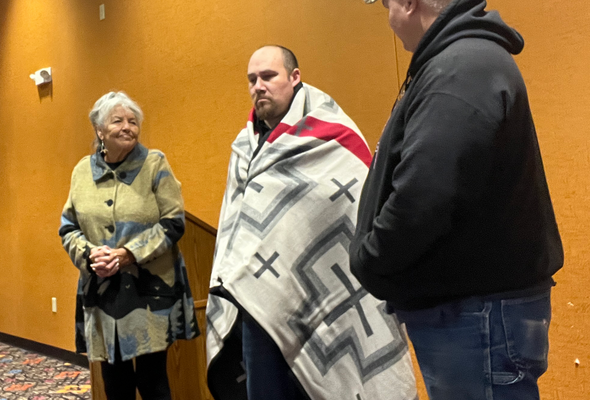Grand Portage and Fond du Lac sue EPA over water quality standards in Minnesota
The Fond du Lac and Grand Portage Bands of Lake Superior Chippewa are suing the federal government over changes made to Minnesota’s water quality standards.
Action by the federal Environmental Protection Agency in October 2021 approved sweeping changes to Minnesota’s water quality rules.
On July 14, Fond du Lac and Grand Portage took legal action against the EPA in what the bands called a “landmark Clean Water Act lawsuit.” The lawsuit was filed in a federal court in Minneapolis.
The move from the EPA in 2021 came after the Minnesota Pollution Control Agency changed water quality standards protecting nearly every lake, river and stream statewide, including the Boundary Waters and Lake Superior. In justifying the switch, the MPCA described the changes as an improvement to old standards that were designed to protect the state’s water. The easiest way to describe the changes is that it eliminates a numeric system for tracking pollutants and relies instead on a ‘narrative summary.’
In a joint statement released July 14, the Chippewa bands involved with the lawsuit say they believe this is the first lawsuit in the nation against the EPA specific to water quality changes at the state level. Grand Portage Tribal Chair Bobby Deschampe said in the statement that of notable concern is how the changes to the water quality standards could impact the bands’ right to hunt, fish and gather throughout their ceded territories, specifically wild rice.
At a public hearing last year regarding changes to the state’s water regulations, April McCormick, a member of the Grand Portage Tribal Council, said the new rules are “under protective” and only benefit large industries seeking to avoid regulation.
According to the 1854 Treaty Authority, “the United States recognizes its legal duty to honor the treaties it made with Indian nations. The Constitution declares treaties to be ‘the supreme law of the land,’ and as such they are not controlled by state law. Indian treaties have the same force and effect as federal statutes; therefore, a violation of an Indian treaty is a violation of federal law.”
In an email sent to WTIP July 15, McCormick said the Tribes have stood together on this issue to protect clean water for all Minnesotans, not just the Grand Portage Band or the other ten sovereign tribal nations across the state.
“It impacts us right now and into future generations,” she said.
In an email from October 2020 that was sent to the office of Gov. Tim Walz and was later shared with WTIP, McCormick, speaking on behalf of all 11 Tribal nations in Minnesota, said the fact wild rice was not considered in the review to change the water quality standards while other crops were was a significant factor in their displeasure with the state and MPCA.
“You analyzed the potential impact of this proposed change on strawberries, corn, soybeans, and hay, to name a few—just not wild rice,” the statement reads. “You’ve again singled out and ignored our sacred manoomin—and the Native people who rely upon it to survive—no matter what we’ve said in years of consultations, meetings, and comments.”














